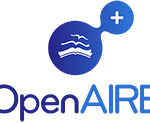 The EPSRC has introduced a new policy on access to outputs arising from funded research:
The EPSRC has introduced a new policy on access to outputs arising from funded research:
EPSRC Council has agreed to mandate open access publication, with the proviso that academics should be able to choose the approach best suited to their field of research. This mandate is now being implemented: EPSRC requires authors to comply with this mandate and ensure that all published research articles arising from EPSRC-sponsored research, and which are submitted for publication on or after 1st September 2011, must become available on an Open Access basis through any appropriate route. As now, publication costs may be recovered either as ‘directly incurred costs’ (if incurred before the end date of the relevant research project) or as indirect costs (and hence factored into the fEC indirect cost rate for the relevant research organisation).
This change in policy means that the EPSRC will now accept that researchers have met their open access requirements if they make their research outputs available via either the Gold OA or Green OA route.
Gold Open Access (pay-to-publish) – peer-reviewed papers published in fully Open Access journals which do not charge subscription fees, or in ‘hybrid’ subscription journals which enable free access to ‘pre-paid’ articles. Subject to certain criteria the publishing fees may be met from direct or indirect costs on EPSRC Research Grants.
Green Open Access – research is published in traditional subscription journals and authors self-archive their papers (as accepted for publication) in a digital online repository, such as BU’s institutional repository BURO. The publisher’s policy is a crucial issue as far as Green OA is concerned. Some publishers have repository-friendly policies, but others embargo deposit of full texts until a year or more after initial publication. SHERPA-RoMEO has a comprehensive list of publishers and their policies to check before deciding where to publish.
The EPSRC’s policy states that the costs of Gold OA can be met from the grant as a direct cost only where that cost is incurred during the period of the grant. If work is published after the grant is complete, then the institution must stump up the cash to publish or use a portion of the indirect costs to fund this. Earlier this year BU launched the BU Open Access Publication Fund to support researchers in making their research freely available.
Find out more about Open Access publishing at BU’s FREE Open Access publishing event on Wednesday 26 October between 10am-12:30pm in the EBC. To book your place please email Anita Somner.
 An Overview of RCUKs Open Access Policy
An Overview of RCUKs Open Access Policy Open Access in Horizon 2020
Open Access in Horizon 2020










 New CMWH paper on maternity care
New CMWH paper on maternity care From Sustainable Research to Sustainable Research Lives: Reflections from the SPROUT Network Event
From Sustainable Research to Sustainable Research Lives: Reflections from the SPROUT Network Event REF Code of Practice consultation is open!
REF Code of Practice consultation is open! ECR Funding Open Call: Research Culture & Community Grant – Apply now
ECR Funding Open Call: Research Culture & Community Grant – Apply now ECR Funding Open Call: Research Culture & Community Grant – Application Deadline Friday 12 December
ECR Funding Open Call: Research Culture & Community Grant – Application Deadline Friday 12 December MSCA Postdoctoral Fellowships 2025 Call
MSCA Postdoctoral Fellowships 2025 Call ERC Advanced Grant 2025 Webinar
ERC Advanced Grant 2025 Webinar Update on UKRO services
Update on UKRO services European research project exploring use of ‘virtual twins’ to better manage metabolic associated fatty liver disease
European research project exploring use of ‘virtual twins’ to better manage metabolic associated fatty liver disease